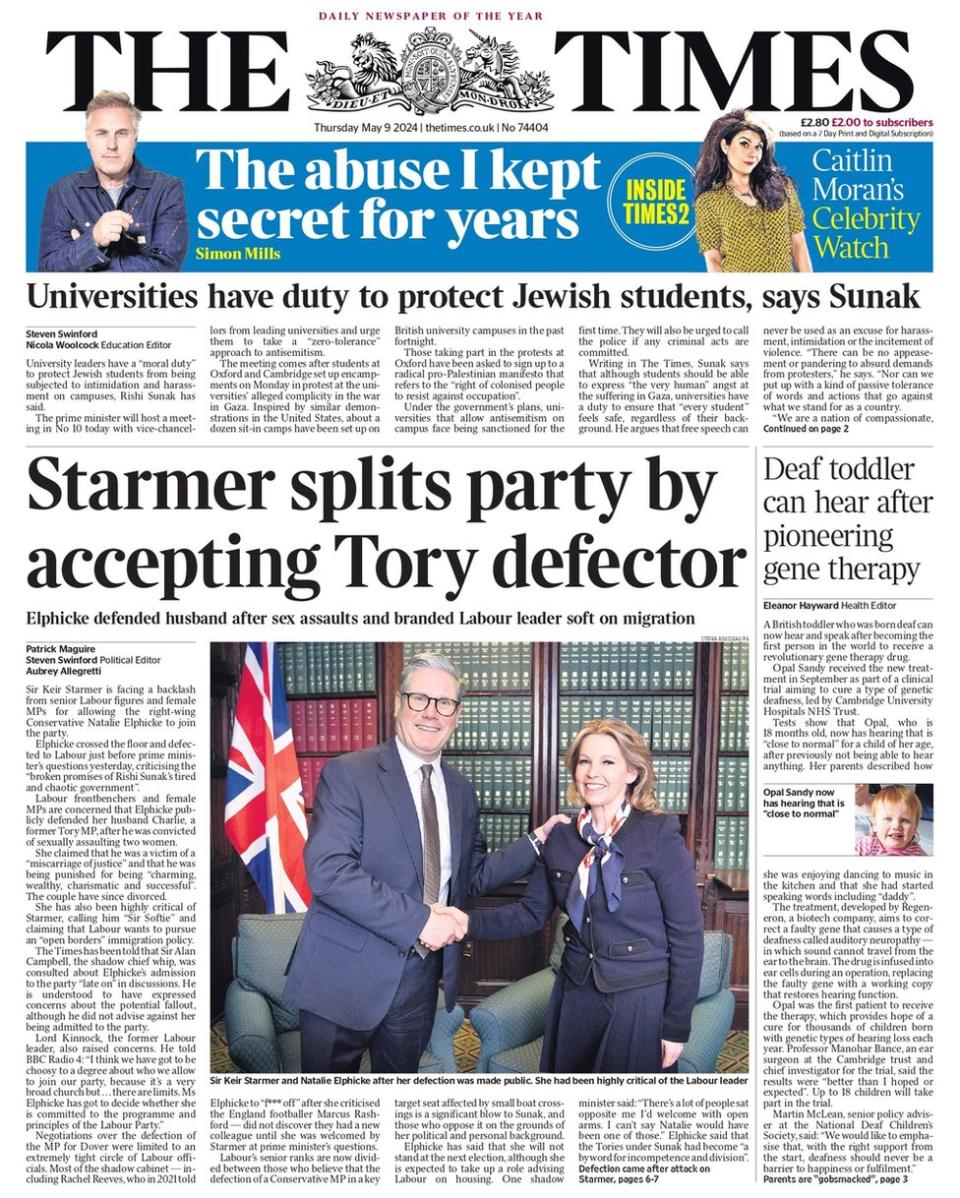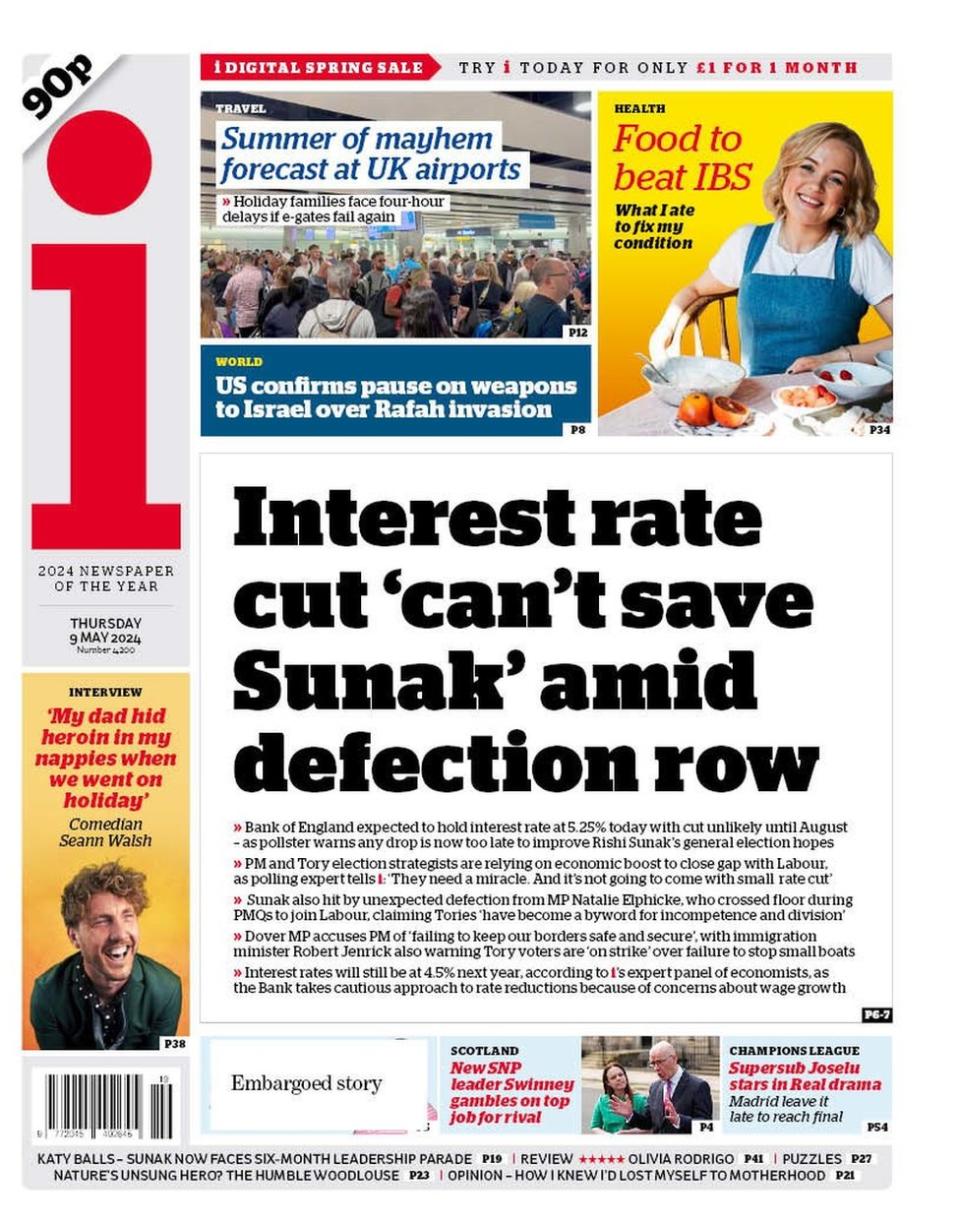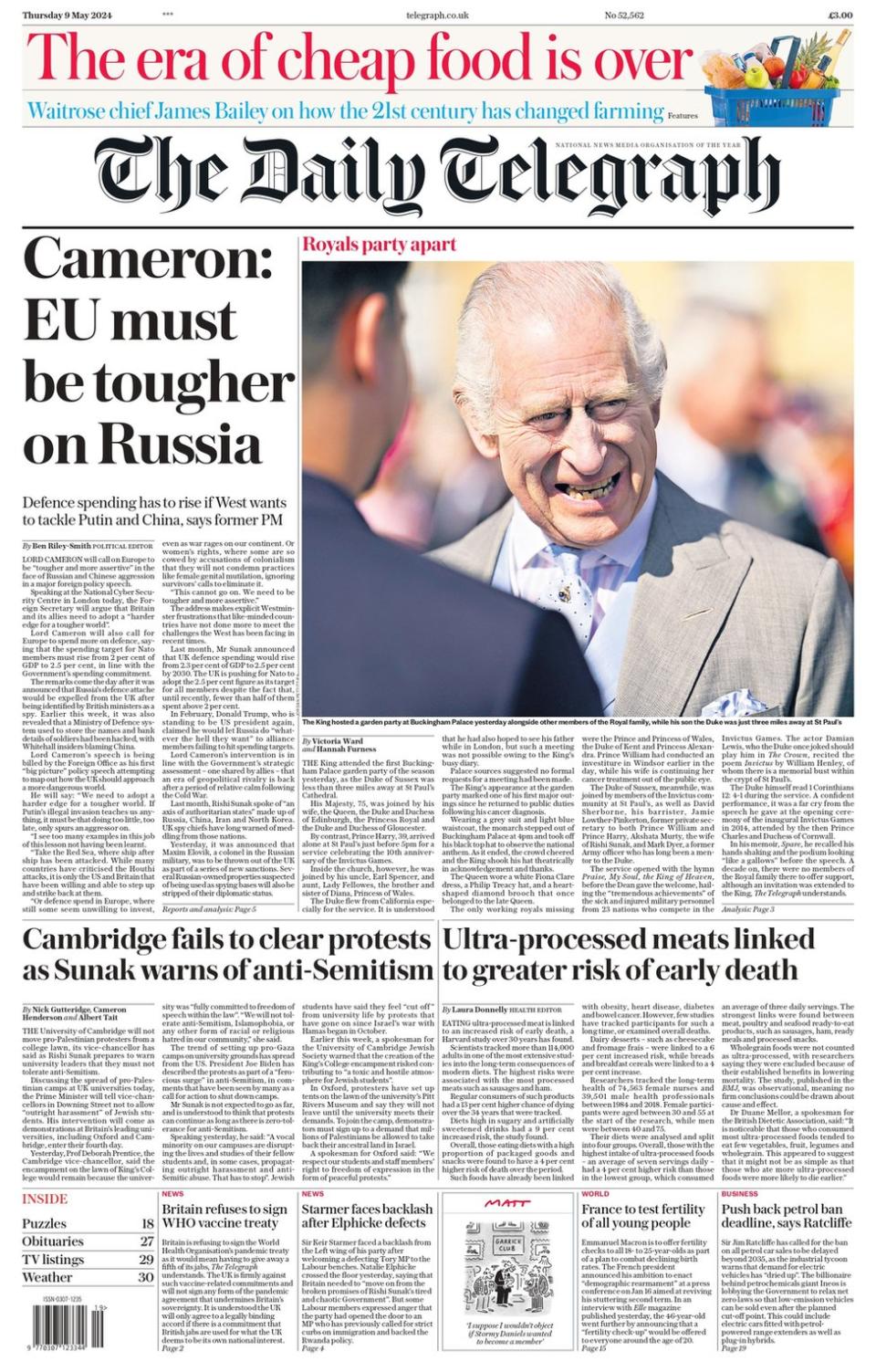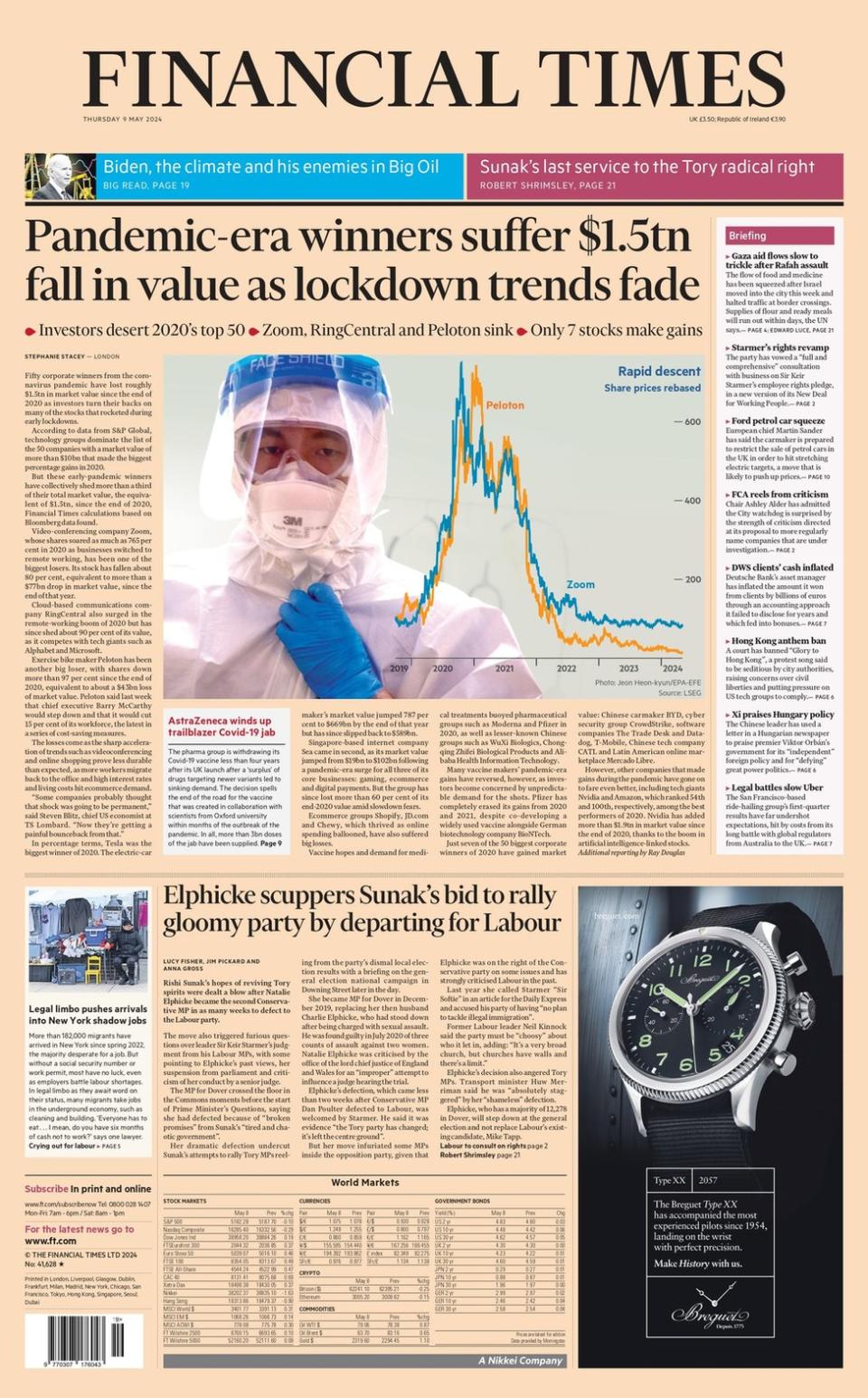Newspaper headlines: 'Starmer splits party' and 'no Royal reunion'










Natalie Elphicke's defection from the Conservatives to Labour dominates the front pages. The Daily Express calls it "shameless" and suggests it shows Sir Kier Starmer "lacks principles", while Tthe Times says her admission has "split" Labour. The Daily Telegraph says Labour is facing a backlash from MPs who are uncomfortable about her previous policy positions. In its editorial, Tthe Sun says Labour has embraced "an unprincipled opportunist who has trashed them for years and whose views change like the weather".
In his parliamentary sketch in Tthe Times, Tom Peck describes Natalie Elphicke's appearance on the Labour benches at PMQs as a "fireworks display", adding "somebody, somewhere might find they've been badly burned". The Daily Mirror's editorial says "when the likes of Ms Elphicke decide Britain will be better served with Keir Starmer in Number 10 it shows how much Labour has changed". In Tthe Daily Mail, Quentin Letts notes that he saw only three Labour MPs shake Ms Elphicke's hand, but that she "soaked up the sunrays of everyone's attention", before leaving the chamber, shoulder-to-shoulder with Labour's leader, as they shared an awkward silence.
The Guardian has conducted a poll of hundreds of climate experts, who say they expect global temperatures to rise by at least 2.5C this century. Many predict what the paper describes as a "semi-dystopian" era - including famines, conflicts, floods, wildfires and storms of an intensity and frequency far beyond what's been seen before. "I could not feel greater despair over the future," one scientist is quoted as saying.
The Financial Times reports on the significantly reduced fortunes of companies that boomed in the pandemic era. It says conference call business, Zoom, and home exercise firm, Peloton, are among 50 companies whose share price has fallen by a combined £1.2 trillion since 2020.
The i has assembled a panel of economic experts who predict the first interest rate cuts won't come until August at the earliest. The pollster Chris Hopkins, from the firm Sevanta, tells the paper that lower rates aren't likely to help Rishi Sunak's political outlook because, he says, the Conservatives need a miracle "and it's not going to come with a small interest rate cut".
The Mirror is among the papers to pick up a survey that gives new insights into how the English language is changing. Adults aged under 28 were asked if they'd heard of a series of traditional British insults. More than half the respondents were unfamiliar with the words lummox, bampot, blighter, plonker and ninny. The Mirror speculates they've been replaced by more contemporary insults, like saying someone has "main character syndrome" - meaning they want to be the centre of attention - being "basic" - which is having mainstream tastes - or calling someone a "Karen" - an entitled moaner.

Sign up for our morning newsletter and get BBC News in your inbox.


